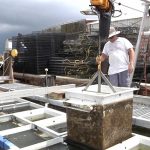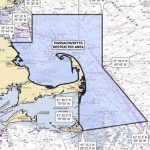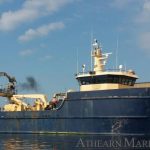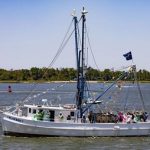Daily Archives: June 27, 2019
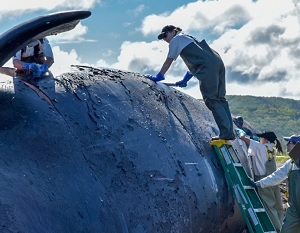
Transport Canada implements speed limits following death of another right whale
Transport Canada has implemented a speed restriction for vessels in the western part of the Gulf of St. Lawrence following yet another death of the endangered North Atlantic right whale on Wednesday. Fisheries and Oceans Canada confirmed a right whale was found dead on the shores of Anticosti Island near the Gulf of St. Lawrence, bringing the number of recent deaths up to five. Scientists are on scene collecting samples for analysis, and working with various partners to assess necropsy options, said a news release from the fisheries department. >click to read<18:07
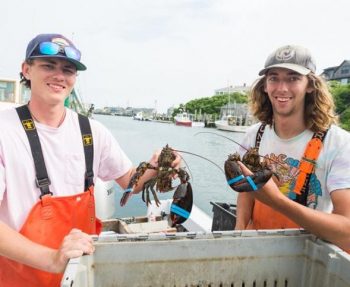
Buoyed by Student Lobster Permits
On the Mayhew dock in Menemsha Harbor, Otto Osmers used a wooden-handled fish pick to pry 25 pounds of skate, one by one, from a 55-gallon drum while Chris Mayhew climbed into a pair of bright orange oil-gear overalls. At seven o’clock on a Sunday morning, most students would still be asleep. But even after a late night of partying, Otto and Chris were wide awake and eager to pull their 25 lobster pots obtained on a special student lobster permit issued by the Division of Marine Fisheries. >click to read<16:19
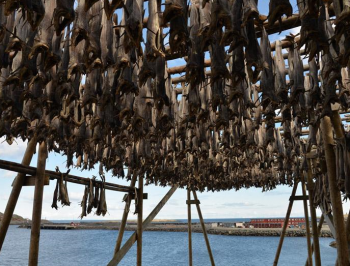
Cod Populations Might be Losing a Migration ‘Supergene’
North Atlantic cod populations haven’t just decreased in number during the last century — their genetic diversity has plunged, too, which could ultimately impede cod from traveling long distances, according to a new study published in the June 26 issue of Science Advances. In particular, overfishing, climate change or a combination of factors may have led to the loss of a closely-linked group of genes — a “supergene” — associated with migratory behavior. Absence of this supergene may interfere with the cod’s ecological niche and could make populations more vulnerable to future collapse. Researchers investigated genetic variation in Northern cod around the Canadian province of Newfoundl,,, >click to read<15:23
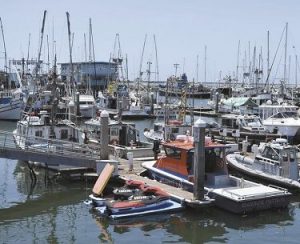
Salmon struggle: Strong season not translating to strong prices for Half Moon Bay fishermen
The commercial salmon season is off to a strong start, but many local fishermen say neither they nor the consumer are reaping the rewards. Fishermen are catching so much salmon that wholesale prices have crashed from $9 per pound down to $5 per pound, where it’s remained for a couple of weeks. “There’s even talk of it going down to $4 a pound and if it does I’ll tie my boat up, it’s hardly worth the wear and tear,” said Frank Sousa, a Half Moon Bay-based fisherman. “It’s hardly worth it at $5.” >click to read<12:24
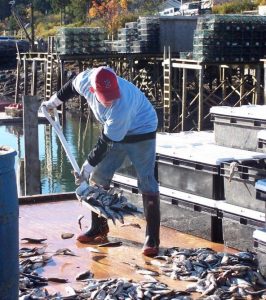
Herring cuts another headache for lobstermen
Maine lobstermen are catching it coming and going, but the “it” ain’t lobsters. Last month, the lobster industry found itself confronted with a demand from federal fisheries regulators that it reduce the risk it posed to endangered right whales by 60 percent and began the arduous task of figuring out how to remove half the vertical buoy lines attached to lobster traps from the water. Though it came as no surprise, earlier this month the New England Fishery Management Council announced that the already scant amount of herring allowed to be caught off the coast of New England would be further reduced in 2020 and 2021. >click to read<11:34
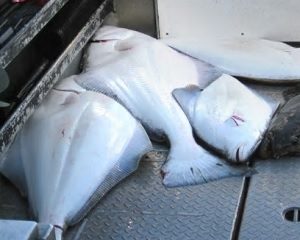
Review of Atlantic halibut survey raises sustainability questions
For more than two decades, Atlantic halibut fishermen have baited their hooks and dropped them to the ocean bottom off Nova Scotia and Newfoundland as part of a collaboration between the fishing industry and the Department of Fisheries and Oceans. The annual May to July halibut longline survey is used to predict halibut abundance in a thriving fishery worth $60 million. Dalhousie University biology student Isabelle Hurley wanted to know if the data told another story. She looked at what else was caught — so-called bycatch — in the survey between 1998 and 2016. >click to read<10:32
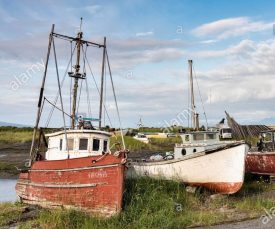
Derelict Vessels Act – Derelict vessel law sets up ‘DMV gantlet’ for thousands of Alaska mariners
A well-intended new Alaska law has gone awry from a botched roll out that has turned thousands of Alaskan fishing vessel, tender, barge and sport fish operators into lawbreakers. Since the start of 2019, all vessels over 24 feet are required to be registered with the State at a Department of Motor Vehicles office. Previously, vessels that were documented with the US Coast Guard were not also required to register with the state. The registration costs $24 and is good for three years. “You need to get down to the DMV whether you’re documented or not,” >click to read<09:39
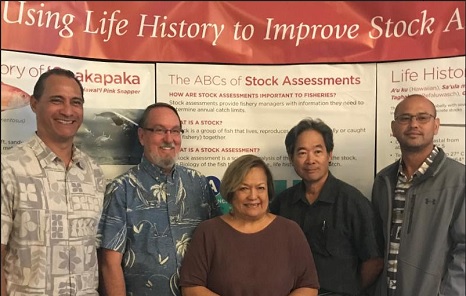
Council Responds to Honolulu Civil Beat Series, Acts on Hawai’i Fisheries and Protected Species
The Western Pacific Regional Fishery Management Council yesterday in Honolulu responded to the Honolulu Civil Beat’s three-part series suggesting members of the Council’s Executive Committee engaged in decision-making for self-profit. Vice Chair John Gourley (Commonwealth of the Northern Mariana Islands, or CNMI) said the Civil Beat articles implied that funding he received from the Sustainable Fisheries Fund for fish biosampling continued after he became a Council member. Honolulu Civil Beat statements about Gourley were included in a section titled “Conflicts of Interest.” >click to read<08:32

































